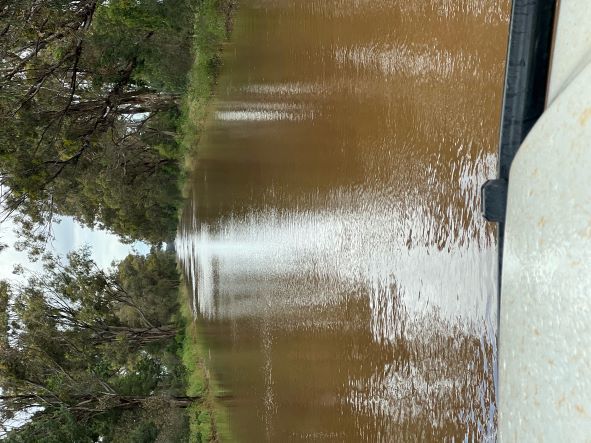Rainfall record-breaker for Lake Cargelligo
Kristin Murdock
08 January 2023, 8:40 PM
 2022 was wet, wet, wet for the Lachlan Shire
2022 was wet, wet, wet for the Lachlan ShireHeavy rain and widespread flooding was the weather constant for NSW in 2022, with records broken in some areas for the first time in generations.
Data released by the Bureau of Meteorology shows several locations across New South Wales experienced their wettest 12 months on record, including many Western Plains localities.
Lake Cargelligo has been recording rainfall for almost 140 years and easily topped their yearly rainfall total with the weather station at the airport recording 925.5 millimetres.
Condobolin was also among the records, charting 962.4mm, the highest in 68 years of records.
Rick Brett, agronomist at AGnVET Services, Condobolin, said the Lake Cargelligo record easily doubled the average rainfall of around 450 millimetres.
"The extra rainfall caused a few issues for farmers," Mr Brett said. "Wheat yields have been all over the shop as wheat got hit with a lot of disease such as rust, septoria and blight. Luckily we didn’t see a lot of pest problems in crops this year."
"Canola and barley are the other main crops in the area and didn’t do too badly. Water-logging has been a problem but yields for canola that wasn't water-logged were excellent in many places."
Mr Brett said some farmers are still harvesting which is unusual for the area.
"Usually, everyone is done by the start of November but some blokes are still out there in the paddock even now."

Roads around Condobolin were more like creeks. PHOTO SUPPLIED.
Other local places featuring in the statistics were Bourke, which recorded the warmest average for autumn days at 27.7 degrees and Condobolin airport which recorded its highest ever daily rainfall of 97.6 millimetres on the 29 January 2022.
The extreme weather conditions across Australia have been blamed on the La Nina weather phenomena.
Analysis of the historic La Nina cycles since 1900 shows that there have only been three triple year La Nina events: 1954-1957, 1973-1976 and 1998-2001.
The current wet cycle is likely to finish into 2023, as there has never been an incidence of four La Nina years in a row.




